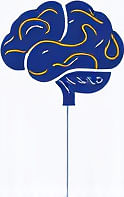Mindfulness Techniques for Neurodiversity in Remote Settings
 by Thaddeus Blanda
by Thaddeus Blanda
Explore practical mindfulness techniques that support adults with ADHD or autism in remote work. These methods help build focus, reduce overwhelm, and foster better work-life balance through simple, daily practices.

Remote work offers flexibility, but it can present unique challenges for adults with neurodivergent conditions like ADHD or autism. Many find that distractions at home make it hard to maintain focus and energy throughout the day. Mindfulness provides a gentle way to address these issues by encouraging awareness of the present moment.
In the content below, we will cover effective techniques that promote calm and productivity. These approaches draw from experiences shared by those in similar situations, aiming to offer support without added pressure.
Why Mindfulness Matters for Neurodiversity
For individuals with ADHD, maintaining attention during long virtual meetings can feel overwhelming. Mindfulness exercises offer a break, allowing the mind to reset and regain control. Similarly, for those with autism, sensory overload from home environments might disrupt routines. Regular practice helps in recognizing early signs of discomfort, leading to better self-management.
One key benefit is improved emotional regulation. By focusing on breath or sensations, people can reduce anxiety that often accompanies remote tasks. This is especially helpful in settings where social cues are limited, making interactions feel more manageable.
Simple Techniques to Try
Let's look at a few straightforward methods that fit into a remote workday. Start with short sessions to build a habit without causing fatigue.
- Breathing exercises: Begin with a few minutes of focused breathing. Sit comfortably at your desk and inhale slowly for four counts, then exhale for four counts. This technique aids in grounding, particularly during high-pressure moments like deadlines.
- Body scans: Lie down or sit quietly and mentally scan from your toes to your head, noting any tension. For adults with ADHD, this can help shift attention from racing thoughts to physical sensations, promoting a sense of calm.
- Mindful walking breaks: Step away from your screen for a short walk around your space. Pay attention to the feel of your feet on the floor or the air on your skin. Autism-related sensitivities might make environments unpredictable, so this practice encourages a gentle reconnection with surroundings.
Incorporating these into your routine can enhance daily flow. For instance, set reminders to pause every hour, turning potential overwhelm into opportunities for renewal.
Adapting Techniques for Daily Life
Everyone's experience with neurodiversity is unique, so flexibility is important. If you have ADHD, pair mindfulness with visual timers to keep sessions structured. This combination supports sustained attention without demanding too much upfront effort.
For those with autism, creating a dedicated quiet space can amplify the effects. Use soft lighting or noise-cancelling headphones during practices to minimize distractions. Over time, these adjustments lead to greater productivity and a more balanced workday.
Consider tracking your progress in a simple journal. Note how techniques affect your energy levels or focus, allowing for personalized tweaks. This reflective step fosters a supportive relationship with your work habits.
Building Long-Term Habits
Sustaining mindfulness involves integration into broader routines. Aim to combine it with work breaks, turning it into a natural part of your day. For example, end meetings with a brief pause to center yourself before moving on.
The impact extends beyond work, influencing personal well-being. By reducing stress, these practices help maintain healthier relationships and leisure time. Remember, progress comes from consistent, small steps rather than perfection.
In closing, embracing mindfulness can transform remote work challenges into strengths. With patience and practice, adults with neurodivergent conditions can achieve a more harmonious balance, making each day a little easier.
